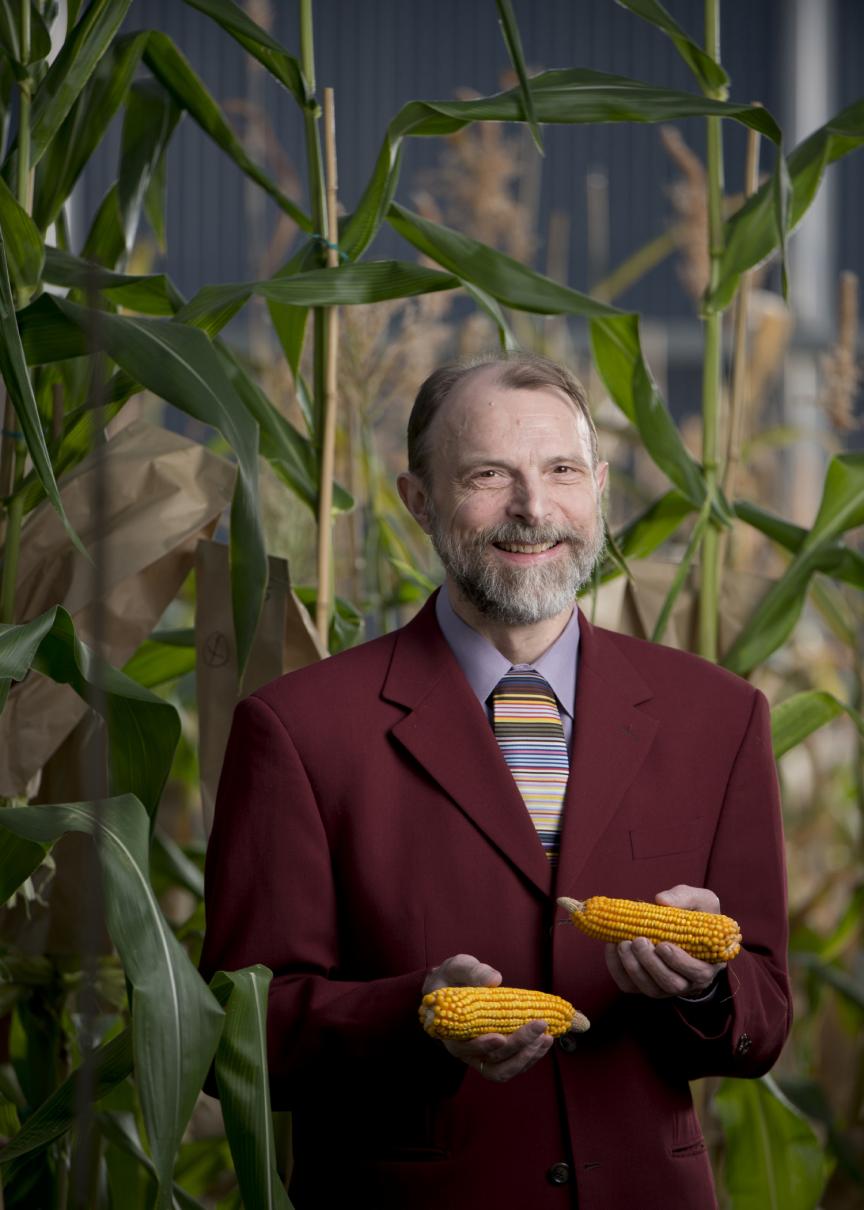Joachim Messing, Renowned Rutgers Scientist, Dead at 73
Biochemist helped crack the genetic code that revolutionized medicine and agriculture

Joachim Messing, an internationally renowned Rutgers University scientist who sought to end hunger, protect the environment and advance medicine, died Friday, Sept. 13.
Jo Messing, director of the Waksman Institute of Microbiology since 1988, made pioneering contributions that underpin the modern fields of genetics, genomics and evolutionary biology. He created the full suite of tools for “shotgun” sequencing of DNA, an approach that vastly empowered the advance of the genomic era of biology. His technique led to the creation of new lines of drought-tolerant plants with greater resistance to insects, herbicides and other environmental stresses. The method enabled biofuels to be extracted for energy from plants such as corn and sorghum, a drought-tolerant African grass grown in regions where corn and other grains do not thrive. The technique also led to the development of drugs such as erythropoietin (EPO) to treat cancer patients.
When he discovered a way to crack the genetic code of humans and plants such as rice, corn and wheat, Messing did not patent his work. Instead, he gave away the tools he invented to scientists worldwide because he believed it was vital for future research. His decision enabled his colleagues to further decipher the genetic blueprint of living cells, revolutionizing medicine, agriculture and basic sciences.
“Dr. Messing was an inspiration to many of his peers and students. While serving as a mentor and consistently encouraging his team to strive to do the impossible, he also took time to celebrate milestones big and small. Birthday celebrations were his favorite, with his team fondly noting Dr. Messing would often sing with the most enthusiasm,” said Rutgers University–New Brunswick Chancellor Christopher J. Molloy. “As we remember Dr. Messing, our thoughts are with the Rutgers community and with his family.”
Messing was the son of working-class parents who grew up in postwar Germany, where he was a pharmacy student and earned a doctorate in biochemistry before coming to the United States. He was the fourth director of the Waksman Institute, a University Professor of Molecular Biology and the first Selman A. Waksman Endowed Chair of Molecular Genetics at Rutgers.
Since arriving at Rutgers in 1985 to become Waksman Institute research director, Messing was instrumental in launching numerous research programs in the life sciences. He spearheaded the development of technological tools for deciphering and engineering genomes from bacteria to humans. He focused on finding innovative methods to develop more nutritious crops that can be grown without additional irrigation and on the same amount of land as current crops.
Messing’s contributions enabled genome sequencing from viruses to tumors, from crop plants to humans. Industries have been built on the foundations he laid: in the life sciences, every company from seeds to pharmaceuticals, every university research laboratory, and the work of thousands of entrepreneurs attracting billions of dollars in investment owe their origins, their methods, their products and their success to the inventive mind, the dogged work ethic and the remarkable generosity of Messing. He was the “world’s most cited scientist” of the 1980s, according to a 1991 report by the Institute for Scientific Information, an academic publishing service.
In 2007, Messing was inducted as a member of the German Academy of Sciences Leopoldina, the oldest continuously existing scientific association in the world. He won the Wolf Prize in Agriculture in 2013 and the Promega Biotechnology Award of the American Society of Microbiology in 2014. He was a fellow of the American Association for the Advancement of Science and the American Academy of Microbiology. He was also a member of the National Academy of Sciences and the American Academy of Arts and Sciences.